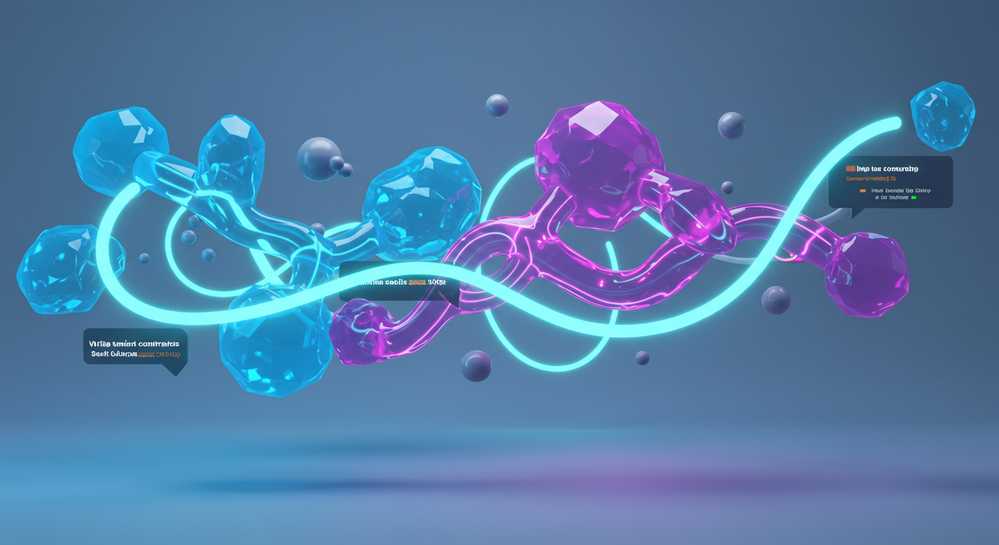
Writing Smart Contracts on Solana: A Developer’s Guide
Solana has emerged as a formidable blockchain platform, renowned for its unparalleled speed and cost-efficiency. Its robust architecture offers developers a compelling environment for building high-performance decentralized applications (DApps).
Understanding how to approach writing smart contracts on Solana is crucial for anyone looking to innovate in the Web3 space. This guide provides a comprehensive overview, from foundational concepts to practical implementation, empowering you to leverage Solana’s potential for your next-generation projects.
Contents
Understanding Solana’s Architecture for Smart Contracts

Solana’s unique architecture profoundly influences the approach to writing smart contracts on Solana. Unlike traditional blockchain models, Solana Programs are stateless. They operate on data stored in separate accounts, a design choice enabling the network’s unparalleled transaction throughput.
Sealevel, Solana’s parallel transaction processing engine, dictates a crucial development pattern. When writing smart contracts on Solana, developers must explicitly declare all accounts a program will read from or write to. This upfront declaration allows the Solana runtime to identify and execute non-overlapping transactions concurrently, a core reason for its high performance.
Rust and the Solana Account Model
Rust is the primary language for Solana program development, chosen for its memory safety and performance. This choice, combined with Solana’s account model, requires developers to manage data serialization and deserialization carefully. The Anchor framework significantly simplifies this, abstracting away much of the boilerplate code and enhancing security for Rust smart contract Solana projects.
Understanding this account-centric paradigm is vital. Programs do not “own” data; they merely process data within specified accounts. This distinction is critical for designing efficient, secure, and scalable decentralized applications on Solana.
Essential Tools and Setup for Solana Development

A robust development environment is paramount for efficiently writing smart contracts on Solana. This setup streamlines your workflow, leveraging Solana’s powerful ecosystem. Key tools, including Rust and the Anchor framework, are essential for secure and high-performance Solana program development.
Installing Rust and Cargo
Rust is a prerequisite for Solana development, chosen for its performance and memory safety. Install it using `rustup`, which also includes Cargo, Rust’s package manager.
- Download and run `curl –proto ‘=https’ –tlsv1.2 -sSf https://sh.rustup.rs | sh`.
- Follow the on-screen instructions to complete the installation.
Solana Command Line Interface (CLI)
The Solana CLI allows you to interact with the Solana blockchain, manage keys, and deploy programs. Install the latest stable version for seamless development.
Install the Solana CLI via `sh -c “$(curl -sSfL https://release.solana.com/v1.18.4/install)”` (or the latest version).
The Anchor Framework
Anchor is a framework for Solana’s Sealevel runtime, simplifying writing smart contracts on Solana. It provides robust tools for building, testing, and deploying secure programs, abstracting many complexities.
- Install Anchor: `solana-install-init –version 1.18.4 && cargo install –git https://github.com/project-serum/anchor anchor-cli –locked –force`.
- Initialize a new Anchor project: `anchor init my-solana-project`.
Building Your First Solana Smart Contract with Anchor

With your development environment configured, you are now ready to begin writing smart contracts on Solana using the Anchor framework. Anchor projects feature a structured layout that organizes your program logic, tests, and client interactions efficiently. The core logic resides within the `programs/your-project-name/src/lib.rs` file.
Defining Your Program Logic with Anchor
Anchor programs are built around a main program module and context structs. The `#[program]` attribute designates the entry point for your smart contract. Within this module, you define public functions, known as instructions, which represent the callable actions of your program.
Each instruction, such as an `initialize` function, requires a context struct. These structs, marked with `#[derive(Accounts)]`, explicitly declare all accounts your program will read from or write to. This explicit account declaration is fundamental to Solana’s parallel execution model, ensuring both efficiency and security when writing smart contracts on Solana.
Ensuring Reliability Through Testing
Anchor places strong emphasis on comprehensive testing. The `tests` directory within your project contains TypeScript or JavaScript files designed for unit and integration testing. Thorough testing is crucial to verify your smart contract behaves as expected, minimizing vulnerabilities before deployment to the Solana network.
Deploying and Interacting with Solana Smart Contracts
After thorough testing, deploying your Solana smart contract is the next critical step. Solana provides distinct networks for development and production. Mastering this process is essential for writing smart contracts on Solana effectively.
Local Deployment for Solana Programs
For rapid iteration, deploy to a local Solana validator. This isolated environment removes transaction costs, speeding up development and refining program logic.
- Start validator: `solana-test-validator`.
- Deploy Anchor program: `anchor deploy`. Compiles Rust code, generates program ID.
Deploying to Public Solana Networks
Once stable, deploy your smart contract to public networks. Devnet is for testing, Mainnet Beta for production. Configure your CLI and ensure sufficient SOL for transaction fees.
- Set CLI to Devnet: `solana config set –url devnet`.
- Run `anchor deploy`. Ensure SOL in wallet.
Interacting with Deployed Solana Smart Contracts
Client applications interact with your deployed contract via libraries like `@solana/web3.js` or Anchor’s client library. Client code sends transactions to Solana, invoking specific instructions and passing data. This interaction is vital for successful Solana DApp development.
Embarking on the journey of smart contract development on Solana opens up a world of possibilities for creating innovative and high-performance decentralized applications. With its unique architecture and developer-friendly tools, Solana provides a robust foundation for your Web3 ambitions.
By mastering the concepts and practices outlined, you are well-equipped to contribute to the rapidly evolving blockchain ecosystem. Ready to explore automated trading solutions? Discover the future of crypto with Ton Trading Bot.



